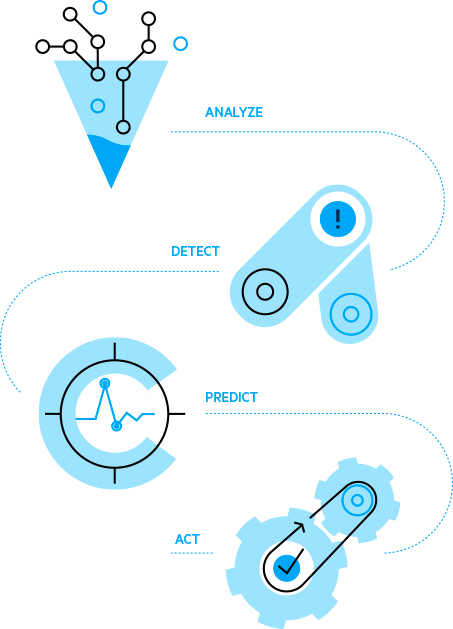
Progress is introducing a new solution for IIoT self-service anomaly detection and prediction. The company announced the availability of its DataRPM self-service anomaly detection and prediction for the IIoT market. The solution will provide research and development groups with better decision-making capabilities for IIoT proof-of-concept and pilot execution.
It is hosted on AWS, allowing organizations to load data securely on AWS, detect equipment anomalies, predict failures before they occur, and validate against failures.
“With billions of interconnected devices pumping out untold volumes of data, there is a huge demand for ways to gather valuable insights from the data. But with limited budgets and lengthy deployment cycles for many machine learning applications, the true value of data is often left untapped or underutilized,” said Dmitri Tcherevik, chief technology officer for Progress. “That is why Progress now offers an R&D self-service option for those organizations looking to start on their IIoT journey more quickly and easily than previously possible. R&D teams can use our self-service cognitive cloud-based application to immediately start detecting and predicting anomalies across their industrial data for fast time-to-insights and more accurate ROA calculations.”
Apache Flink 1.5 now available
Apache Flink 1.5 has been released, with improvements to stream processing. Flink is an open-source stream processing framework. The team has redesigned large parts of Flink’s process model, which will allow for more natural Kubernetes deployments.
“We believe that the field of stream processing, and Apache Flink with it, is taking another major leap at the moment. Stream processing is not just faster analytics and a more principled way of building fast continuous data pipelines. Stream processing is becoming a paradigm to build data-driven and data-intensive applications – it brings together data processing logic and application/business logic,” the team wrote in a post.
In addition, Apache Flink now connects broadcasted streams to other streams that can maintain keyed states, such as feature vectors or state machines. It also made improvements to the network stack to to improve support for real-time applications that have tight latency constraints.
Full details are available here.
Apache NetBeans 9.0 RC1 is released
The Apache Software Foundation has announced the release of Apache NetBeans 9.0 RC1. NetBeans is a integrated development environment for Java that is currently in the incubation phase at Apache.
This release includes all modules in the ‘release90’ branch of the project’s Git repository, making it a full IDE for Java SE development.
This version of NetBeans fully supports JPMS (Jigsaw) and it features a new Java Modular project type, which enables developers to create several JDK9 modules in a single NetBeans project. It also provides a console-like UI for Java Shell and extends the capabilities of the command line tool.
ARCore apps now available on Mix 2S devices
Google has announced that starting today, ARCore apps will be available on Mix 2S devices from the Xiaomi App Store in China. It already has support for a number of devices, and will be adding additional devices in the future. Only devices that are running Android 7 (Nougat) or higher support ARCore.






